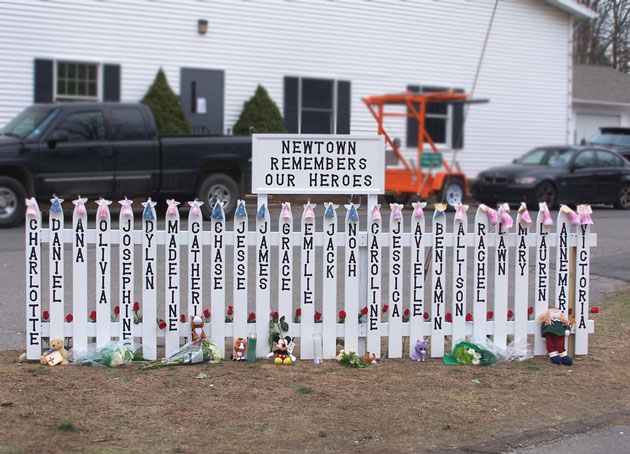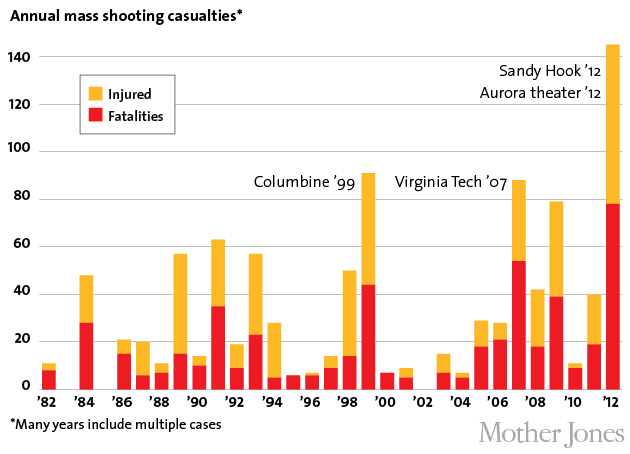Late last week Megan McArdle of the Daily Beast posted an online interview she did with criminologist James Alan Fox, in part taking issue with our mass shootings investigation at Mother Jones. I was glad to see McArdle continue the conversation with Fox; as he and I agreed in a recent exchange, mass shootings deserve continuing inquiry. ?
Based on data that includes all gun crimes in America involving four or more fatalities, Fox has found that mass shootings are not on the rise. He has also applauded our more narrowly focused investigation, which found a rise in a specific type of mass shooting, and acknowledged its value to studying the problem.
McArdle, however, maintains that our in-depth project is of no value: It is, in her view, “not a database of mass shootings; it’s a database of mass shootings that Mother Jones wanted to include in their database.”
In fact, we stated explicitly at the outset that our investigation was not all-inclusive, but rather a deep study of a particular kind of mass gun violence. Because no clear definition of “mass shooting” exists, we consulted with federal law enforcement officials and academic experts—including Fox—to develop criteria.? Our goal was to dig deeper into the specific phenomenon of seemingly incomprehensible attacks in public places—shopping malls, religious buildings, workplaces, schools—to try to make more sense of these “senseless” tragedies. Thus, we excluded other types of clear-cut cases in which the primary motive involved gang activity, armed robbery, or domestic violence.
Given the complexity of mass gun violence, we suspected that we might encounter a couple of exceptional cases that would require discretion in applying our criteria. We chose to include the Columbine massacre, as well as the Westside Middle School shooting, because they fit the criteria despite that two shooters were involved in each case, an exception we flagged for readers. In other words, we included all school shooting cases from the last 30 years clearly fitting this type of attack, as defined by fatality count, location, and motive. (It bears noting that if we were to have excluded those two cases, it would not have meaningfully altered any of our broader analytical findings.)
In attacking our work, McArdle relies heavily on Fox’s own initial criticism of it—though Fox had misread some of our data, writing for example that we excluded cases “involving family members.” That is inaccurate; multiple cases in our data set include victims related to the killer.
It seems rather curious for McArdle to suggest that our five-month investigation “tells you nothing about anything.” Our conclusion that mass shootings have increased in recent years has added an important data point to the national debate—one that has been cited by the New York Times, National Public Radio, CNN, MSNBC, Fox News, the Washington Post, the Los Angeles Times, New York magazine, Salon, The Atlantic, the Huffington Post, and USA TODAY. And that finding is merely the tip of the iceberg: Many reporters and commentators have discussed our analysis of the shooters’ specific weapons, gender, age, race, mental health, and ability to obtain firearms, as well as our study of the proliferation of guns in the US and a recent wave of state laws rolling back gun restrictions. Our data appeared in written testimony submitted to the Senate Judiciary Committee last week as Congress opened hearings on potential gun reforms.
With this work we’ve begun to fill part of the void left by the gun lobby’s quashing of firearms research. The bipartisan coalition Mayors Against Illegal Guns has just released a study of mass shootings using yet another approach, which in part sheds light on the role of domestic violence. Our hope is that others will join in gathering and analyzing more of this much-needed data.

















